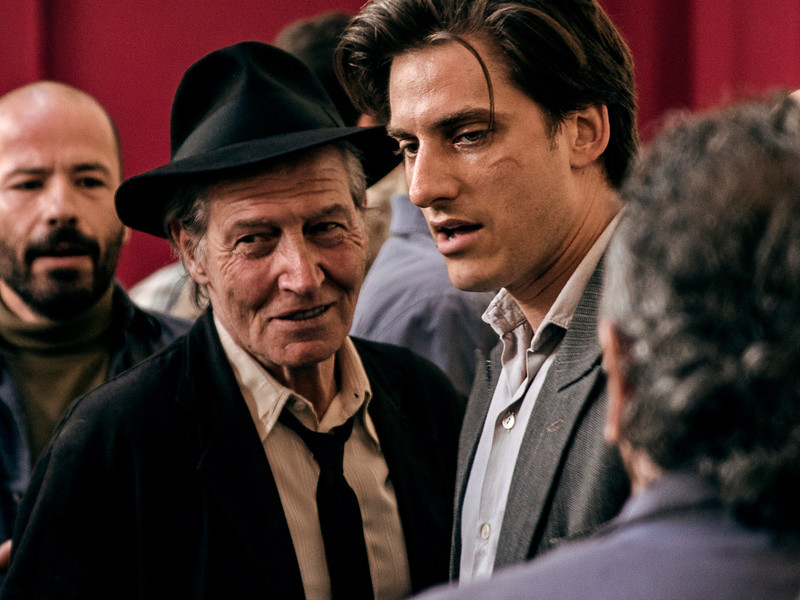|
By Benjamin Akpan One of American writer Jack London’s most celebrated novels, the 1909 book Martin Eden contains beautiful prose and sharp social commentary. Its subject matter is heavy, tackling political philosophy as well as the stresses of life. A mostly autobiographical tale, London deviates from the life-and-death adventures typical in his other novels. Only twice has Martin Edenbeen adapted for screen – both times even before the advent of colour television – and you’d be hard-pressed to find someone with knowledge of either film. But, because – as the popular saying goes – the third time’s a charm, Italian director Pietro Marcello tries his hand at London’s book and its complex characters. He transposes London’s story from San Francisco to Naples, Italy, putting an entirely new spin on the book, and for the better. Marcello’s unconventional iteration of Martin Edenis a poetic, almost fairy-tale-like retelling that proves the popular saying right. Crowned by a masterful performance by Luca Marinelli, it is a potent adaptation that serves as a textbook mirror into the current political landscape. © Youtube | The Match Factory This timeless story of obsession follows the titular character Martin Eden, an autodidact trying to find his way out of the proletariat milieu. Martin’s quest for success is driven by Elena Orsini (Jessica Cressy), an upper-class young lady with whom he has fallen in love. Of course, this union could never work: Martin is too uneducated to end up with someone like Elena. So he learns, and he reads, and he writes, and he becomes good at it. We follow Martin through his journey as an author and how his ideas – and consequently, his life – are shaped by the rapidly changing political landscape of Italy. Pietro Marcello strips Jack London’s book to its very essential concept: a tender romance – not between a man and his woman, but a man and his art. The film’s first half is a slow-burn progression that trails Eden’s discovery and love for the arts and culture. Shot as though every moment is a frame in a montage from a 1920’s silent epic, the film is just as lyrical and cinematic as its characters. The 16mm film cinematography is soft and sophisticated, and the exorbitant beauty of Naples provides a flowery aesthetic that highlights the romanticism, both of the characters and of the times. Throughout the film, Marcello delicately interweaves archival footage from his previous works as well as historical findings. This contrapuntal style of editing gives us insight into the complex mind of Eden. The archival shots are a mere expression of the feelings and thoughts of Eden which are just as confusing to him as they are to us. Eventually, the film undergoes a major tonal evolution, digressing from a story about a man and his art, to a tale depicting the rise and fall of an obsessed writer, with a political tinge that becomes more and more pronounced as the story unfolds. In a Q&A following the film’s TIFF premiere, Marcello describes Martin Eden’s arc as that of “a simple man who uses culture to seek revenge on those who looked down on him as a result of his ignorance.” Eden is a man who does not have the tools to understand the affairs around him. His introduction to literature comes with the false idea that aristocracy in itself is the repository of absolute knowledge, which he hopes to attain. However, by the time he finally achieves success, Martin finds himself distant both from his class of origin and from the class to which he longed to belong, coming to the conclusion that both – one driven by socialism, the other by liberalism – are as conflicting as they are concordant, balancing each other out to maintain the status quo. The change in Martin's political ideals is perfectly exemplified by the two love stories during the film: one is with a girl of the people, the other with a scion of the bourgeoisie. As he evolves, he grows increasingly distant from both women. But a jarring narrative jump and rushed ending keep Martin Edenfrom greatness. The disjoint between Martin in the beginning and Martin in the end disrupts the film’s emotional consistency. Martin Edenworks best as a portrait of a writer and his struggle to keep his art alive. But as a critique of social and political ideals, the film slightly loses focus. Yet, Pietro Marcello is adroit enough to ensure that he never loses his audience. Still, Martin Edenappears graceful and timeless. Marcello and Marinelli have created a piece of art that – although slightly flawed – feels enviably consummate. *Editor’s Note: Martin Eden premiered at the Toronto International Film Festival ’19 as part of the PLATFORM programme.
|
Recent Posts
Categories
All
Archives
February 2022
|
|
GET THE APP!
Listen to VIBE 105 anywhere you go!
|
OUR STATION
|
TUNE IN RADIO
|
STAY CONNECTED
|
Copyright © 2021 Canadian Centre for Civic Media and Arts Development Inc. Except where otherwise noted, presentation of content on this site is protected by copyright law and redistribution without consent or written permission of the sponsor is strictly prohibited.





 RSS Feed
RSS Feed


